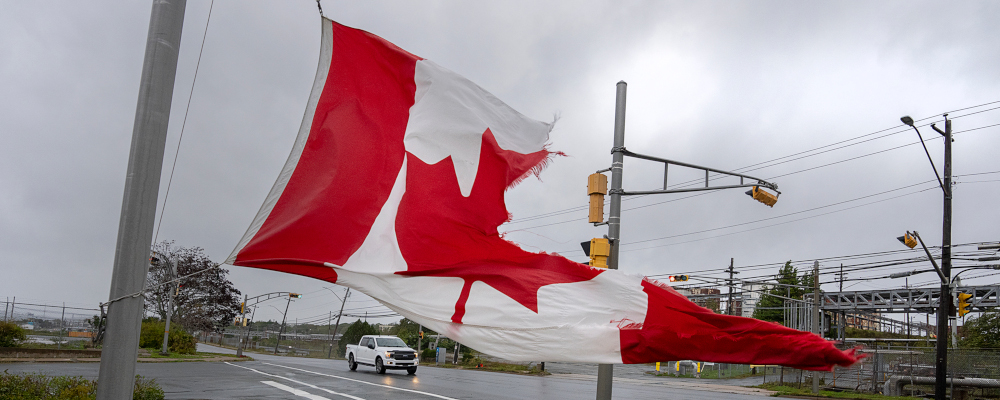In the past decade, Canada was often portrayed as a land of opportunity, stability, and growth. For many digital nomads and location-independent professionals, it appeared to be the perfect mix of developed infrastructure and international respect. But as 2025 unfolds, more Canadian nomad experts are reaching a breaking point. Frustrated with the rising cost of living, relentless tax policies, and what many describe as an “anti-entrepreneurial environment,” they are voting with their feet.
This article explores why Canadian nomads are fed up, why so many are looking abroad, and why places like Dubai are increasingly seen as the natural alternative. With insights from Tomas Kendall, Canadian entrepreneur and nomad mentor, and Kevin McKenzie, co-founder of GenZone, we examine how this wave of dissatisfaction is reshaping the way Canadians think about their careers and lifestyles.
The Myth of Canada as a Nomad-Friendly Nation
For years, Canada’s brand was tied to openness, inclusivity, and opportunity. Yet when you speak with nomad experts, consultants, and freelancers who actually tried building location-independent careers from within Canada, the story is more complex.
According to Tomas Kendall, “Canada is a beautiful country and has some of the best human capital in the world. But when it comes to actually supporting independent professionals or nomads, the policies are outdated and the mindset is stuck in the 1990s.”
The problems start with taxation. Canada operates one of the highest marginal tax systems in the world. Once a nomad earns above a modest threshold, they are paying 30 to 50 percent of their income to the government. That figure, combined with provincial taxes and additional fees, creates a heavy burden.
“People who live in Toronto or Vancouver and try freelancing online discover very quickly that they are working half the year for the government,” Tomas explains. “At the same time, they do not feel like they are receiving real benefits compared to what they could access globally.”

The Inflation Crisis and Cost of Living
Beyond taxes, the Canadian nomad community is being squeezed by inflation and high costs. Housing affordability in cities like Toronto, Vancouver, and even mid-sized markets such as Calgary has spiraled. Nomads who once believed they could maintain a flexible lifestyle within Canada now find themselves spending more on rent than they earn from early-stage consulting or freelance work.
Kevin McKenzie from GenZone points out, “We hear from Canadians every week who tell us their rent went up 20 percent in two years, their grocery bills doubled, and yet their business revenue has not grown at the same pace. When you are trying to run a lean, global business, those numbers do not add up.”
This affordability crisis is one of the primary reasons nomads are leaving. Living costs are crucial for freelancers and remote entrepreneurs, and Canada is no longer seen as a cost-effective base.
The Bureaucratic Drag
Another recurring complaint among Canadian nomad experts is bureaucracy. Unlike other countries that have actively rolled out nomad visas, simplified tax residency rules, and business-friendly digital policies, Canada lags behind.
Opening or managing a business often requires navigating multiple levels of government, provincial regulations, and tax filings that are among the most complex in the world.
Tomas recalls mentoring a Canadian consultant who tried to set up a simple online coaching business: “She spent months dealing with provincial paperwork, tax registration, and bank verification. By the time she was ready to go live, she had already lost momentum. Compare that to Dubai or Estonia, where you can set up an entire company in weeks.”
The bureaucracy is not just frustrating, it kills innovation. For nomads, who rely on speed, flexibility, and experimentation, Canada feels like a slow-moving machine.

The Tax Residency Trap
One of the biggest issues facing Canadian nomads in 2025 is tax residency. Unlike some countries that allow simple non-resident tax designations, Canada aggressively enforces residency ties. Even if someone spends most of their time abroad, if they maintain a home address, family ties, or even certain bank accounts in Canada, they may still be considered tax residents.
Kevin notes, “We talk to people who thought they had left Canada for good, only to get hit with a massive tax bill years later. The system is designed to make it almost impossible to cut ties unless you are very intentional about it. That creates fear and confusion for anyone trying to live abroad.”
The Canadian Revenue Agency (CRA) is known for auditing nomads and enforcing rules that make true financial independence difficult. This has pushed many Canadians to not only move abroad but also fully restructure their financial lives elsewhere.
Mental Burnout and Loss of Optimism
Perhaps the most surprising trend is not just financial frustration but emotional fatigue. Nomad experts in Canada describe a sense of burnout from constantly fighting uphill battles.
“There is this feeling that the harder you work, the less you actually keep,” says Tomas. “People lose optimism. They stop believing that they can scale their businesses within Canada. That is when they start looking outward.”
The burnout is compounded by weather, lifestyle limitations, and the difficulty of maintaining global networks from Canada’s geographically isolated position. Many professionals feel cut off from global opportunities.
Why Dubai Keeps Coming Up
Whenever Canadian nomads begin discussing alternatives, one name consistently comes up: Dubai. The city has transformed its reputation in the last decade from an oil-driven economy to a global hub for entrepreneurs, creators, and nomads.
Unlike Canada, Dubai offers 0 percent personal income tax, straightforward residency pathways, and free zones specifically designed for digital businesses. Nomads can set up companies within weeks, access global banking systems, and operate in a location that connects Asia, Europe, and Africa.
Kevin McKenzie explains, “When Canadians see the Dubai model, they are shocked. They realize how simple things can be. A Canadian consultant who spent months fighting with paperwork at home can set up a company here in three weeks and immediately be operational.”
Dubai also offers lifestyle advantages. While Canada struggles with housing affordability, Dubai offers a range of living options, from affordable apartments to luxury communities, with far more favorable tax treatment.

Case Studies of Canadians Who Left
To illustrate the shift, let us consider two stories.
Case Study 1: Emily, a digital marketing consultant from Vancouver
Emily spent three years trying to grow her consultancy while living in Vancouver. By 2023, her rent had doubled, her tax bill was crushing, and she was working long hours without seeing meaningful growth. In 2024 she relocated to Dubai, set up her company through a free zone, and within months she had doubled her income simply by retaining more of what she earned.
Case Study 2: Daniel, an e-commerce seller from Toronto
Daniel built a small Shopify store while juggling Canadian regulations and rising operational costs. He faced difficulties with banking and taxation at home. After moving to Dubai in 2025, he found access to better payment gateways, lower overhead, and a thriving community of fellow e-commerce founders.
These stories are becoming more common. The message is clear: the frustration in Canada is not isolated but systemic.
The Canadian Government’s Blind Spot
Why has Canada failed to adapt to this shift? The answer lies in its policy blind spots.
For decades, Canada’s focus has been on attracting traditional industries and salaried workers. The rise of nomadism, remote consulting, and global entrepreneurship has not been properly addressed. Instead of making the country competitive, the government doubled down on old models: taxing heavily, regulating tightly, and prioritizing short-term revenue collection over long-term innovation.
This short-sighted approach is pushing out precisely the type of talent that could have made Canada more competitive globally.

What Canadian Nomads Really Want
When you ask Canadian nomad experts what they are truly looking for, the answers are simple:
- Fair taxation that allows them to keep more of what they earn
- Streamlined business setup that does not involve endless red tape
- Global connectivity so they can work seamlessly with international clients
- Affordable lifestyle options that match their flexible incomes
- A community of like-minded professionals who support growth and innovation
Unfortunately, these are not the features Canada is currently offering.
The Growing Canadian Exodus
The phrase “Canadian exodus” has begun appearing in media coverage, and while it may sound dramatic, the trend is undeniable. More Canadians are exploring second residencies, offshore companies, and alternative tax systems than ever before.
Tomas reflects, “I mentor young Canadian entrepreneurs who tell me, straight up, that they cannot imagine building a future in Canada. Ten years ago, that was unthinkable. Now it is almost the norm.”
Looking Forward: 2025 and Beyond
The next few years will be decisive. Unless Canada radically reforms its taxation, bureaucracy, and affordability issues, the outflow of nomads will continue. The global competition is simply too strong. Countries like the UAE, Portugal, and Singapore are building ecosystems that are attractive, streamlined, and pro-nomad. Canada risks losing not just individuals but an entire generation of innovators.

How GenZone Helps Canadians Transition
For Canadians who are ready to take the leap, working with a trusted partner is essential. This is where GenZone comes in. Founded to help entrepreneurs and nomads establish themselves in Dubai, GenZone specializes in company formation, tax residency guidance, and ongoing business support.
Kevin McKenzie, Co-Founder at GenZone says, “Our role is to remove the friction. Canadians are often overwhelmed by what it takes to leave their tax residency properly and set up abroad. We provide clear guidance, practical steps, and full support so they can focus on building their businesses rather than battling paperwork.”
Tomas adds, “The future belongs to those who are willing to take control of their environment. If Canada is not working for you, do not wait another five years. Explore what is possible globally.”
Final Thoughts
Canadian nomad experts are fed up in 2025, and their frustration is not misplaced. Between high taxes, suffocating bureaucracy, and skyrocketing costs, Canada has become an increasingly difficult place to sustain a nomadic lifestyle. Yet rather than despair, many are finding hope abroad.
Dubai and similar hubs are not just alternatives, they are proof that another model is possible. For Canadians willing to make the move, the rewards can be substantial: more freedom, more income, and a stronger sense of possibility.
As more Canadian nomads share their stories, one theme is emerging loud and clear: the future of work is global, and the ones who embrace it will thrive.







